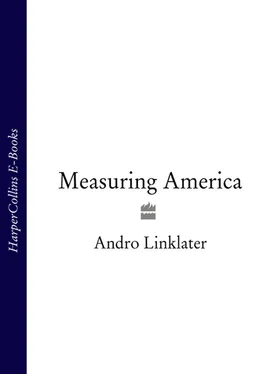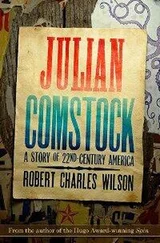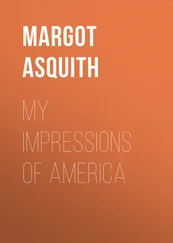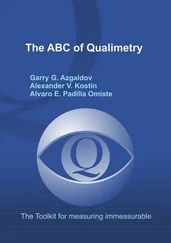Persis had kept the family going during Rufus’s long absence, and nine months after his return to the marriage bed, another son was born; but by then he was soldiering again. This time he was fighting the King, one of the first men to be commissioned into the Massachusetts Regiment following the first ringing shots at Lexington in April 1775.
Almost at once, his talent for finding practical solutions to complex problems found an outlet. Following the outbreak of hostilities, an American force of 11,500 men under George Washington surrounded a British army under General Thomas Gage in Boston. With little faith in his untrained men against six thousand British regulars, Washington needed to pen Gage in, but lacked anyone with the knowledge to construct the necessary siegeworks. In the same uncomplicated way that he had taught himself to be a surveyor, Rufus read up a book on military engineering, then laid out a system of trenches and defensive posts that kept the British cooped up until the spring of 1776, when the threat of artillery bombardment forced them to sail away. Washington rewarded his bristly subordinate by appointing him chief engineer to the army, and to the end of his days Rufus remained Washington’s man, body and soul. In peacetime, all political questions were solved by doing whatever Washington required, and if that was not clear, Rufus would write to ask. Anyone who opposed his general and later his president was an enemy – and one particularly prominent opponent, whose name Rufus could never bring himself to mention, was an ‘Arch Enemy’.
That individual was Thomas Jefferson. The time for him to reveal himself as Rufus Putnam’s Arch Enemy did not come until after the war, but even in 1776 it was evident that he marched to the beat of a different drum. Indeed, if there was any one person immune to the general lust for land beyond the Appalachians, it was this Virginian planter, who in his wording of the Americans’ Declaration of Independence changed their fundamental assertion of rights from ‘life, liberty and property’ to ‘life, liberty and the pursuit of happiness’.
It is one of the greatest paradoxes in the paradoxical character of Thomas Jefferson that he – who was to acquire more western land on behalf of the United States than any speculator could have dreamed of possessing, who laid the foundations for the nation’s further territorial expansion to the Pacific by sending Lewis and Clark to find a route to the coast in 1803, who believed passionately in the virtues of owning land, and adored his own plantations and garden at Monticello – was so tepid in acquiring it for himself. From his father, Peter, he inherited about seven thousand acres in the Virginian piedmont including Monticello and its farms, and his marriage to Martha Wayles Skelton in 1772 added to his holding. He even joined several schemes for acquiring land beyond the mountains, but then neglected them, and all eventually failed.
By birth and upbringing, Jefferson belonged to the Virginian plantation aristocracy – the family had been there since the late seventeenth century – and generations of Jeffersons had followed the frontier west; to them land acquisition was second nature. In other matters he had many of the characteristics of the planter class, especially their extravagance: living constantly in debt, but insisting on the best in wine, furniture, carriages and harness, he died a bankrupt in all but name. As a child, Jefferson was clearly destined for that aristocratic role. The model before him was that of his large, raw-boned father, Peter, who had not only run the Fairfax line with Lewis through the swamps and ravines of the Blue Ridge, but later extended William Byrd’s boundary between Virginia and Carolina almost into Kentucky, and only returned home to build a plantation mansion on the frontier and lay plans with his neighbours to acquire still more land through the Loyal Land Company. Before his death in 1757, when Thomas was fourteen, Peter appointed various friends and relatives as guardians to his children, and all but two of these were trustees of the Loyal Company.
Thomas’s first years were spent roaming free in the foothills of the Blue Ridge. Recognition of his place as an insider came with his election in 1769 as a twenty-six-year-old lawyer to the Virginia legislature’s House of Burgesses, which represented plantation owners’ interests. When he began to question the basis of the royal claim to exercise feudal power over the land beyond the mountains, his conclusion was what his class would have expected – that George III had no right to restrict their desire to acquire property.
In Saxon England, before William the Conqueror had imposed his regime, Jefferson argued, feudalism was unknown. ‘Our Saxon ancestors held their lands, as they did their personal property, in absolute dominion,’ he declared in a fiery pamphlet, A Summary View of the Rights of British America , published in 1774. It was William and his Norman invaders who had invented ‘the fictitious principle that all lands belong originally to the king’, and the fiction had been maintained by his successors. Since America had been occupied and won without help from the Crown, George III had no grounds for claiming power over the disposal of its land. Only a democratically elected legislature had that power, Jefferson concluded, and, in a phrase that would have been music to any settler’s ears, wrote that if it failed to do so ‘each individual of the society may appropriate to himself such lands as he finds vacant, and occupancy will give him title’. It was this sweeping attack, cutting at the very foundation of royal power over America, that led to Jefferson’s appointment by the Continental Congress in 1776 to the three-man committee responsible for drafting the Declaration of Independence.
Yet Jefferson was never a truly typical member of his class. He thought about land in a way that no speculator would. To the end of his life he retained an idealised vision of pre-feudal Saxon society, with its local court and administration based on the ‘hundred’ or parish, and its values derived from the stout-hearted, independent-minded yeomen farmers who worked the soil. Consequently all the political systems he devised, for counties as for nations, shared one fundamental quality: the widest possible distribution of land.
In a memorable passage in Notes on the State of Virginia , the book written from 1780 to 1782 which expresses some of Jefferson’s deepest beliefs, he explained, ‘Those who labour in the earth are the chosen people of God, if ever he had a chosen people, whose breasts he has made his peculiar deposit for substantial and genuine virtue.’ Other trades had to depend ‘on the casualties and caprice of customers. Dependence begets subservience and venality, suffocates the germ of virtue, and prepares fit tools for the designs of ambition.’ But ‘[c]orruption of morals in the mass of cultivators is a phaenomenon of which no age nor nation has furnished an example’.
It is hard to think of any other Virginian who might have entertained such a far-fetched idea. Not William Byrd, who observed of his fellow-planters, ‘Our land produces all the fine things of Paradise, except innocence.’ Not Washington, cheated by a farming acquaintance, William Clifton, into paying an extra £100 (about $470) in 1760 for an estate neighbouring on Mount Vernon. Not Jefferson’s friend Fielding Lewis, who remarked of the land deals in the piedmont that ‘every man now trys to ruen his neighbour’. For them land was a source of wealth, not the basis of God-given virtue.
There was, however, more wisdom in the world than the planters knew of.
In 1760, at the age of sixteen, Thomas Jefferson had been sent to William and Mary College in Williamsburg, where he had fallen under the influence of a remarkable teacher named William Small, and the experience marked him for life. In his autobiography, written in his seventies, Jefferson paid Small this tribute: ‘It was my great good fortune, and what probably fixed the destinies of my life that Dr. Wm. Small of Scotland was then professor of Mathematics, a man profound in most of the useful branches of science, with a happy talent of communication, correct and gentlemanly manners, & an enlarged & liberal mind.’ Jefferson was famously guarded in his emotions – this prompted Joseph P. Ellis, an especially perceptive observer, to call his biography of Jefferson American Sphinx – but where Small was concerned he became almost fulsome. ‘Dr. Small was … to me as a father,’ Jefferson confided to a friend. ‘To his enlightened and affectionate guidance of my studies while at college, I am indebted for everything.’ The brief reference in his autobiography to his real father, the great surveyor, is stark by comparison: ‘My father’s education had been quite neglected; but being of a strong mind, sound judgment and eager after information, he read much and improved himself.’
Читать дальше












